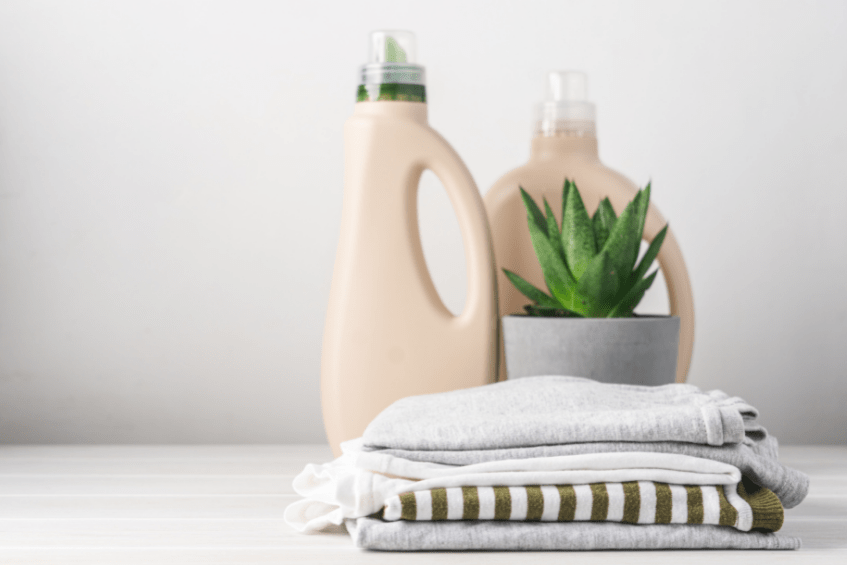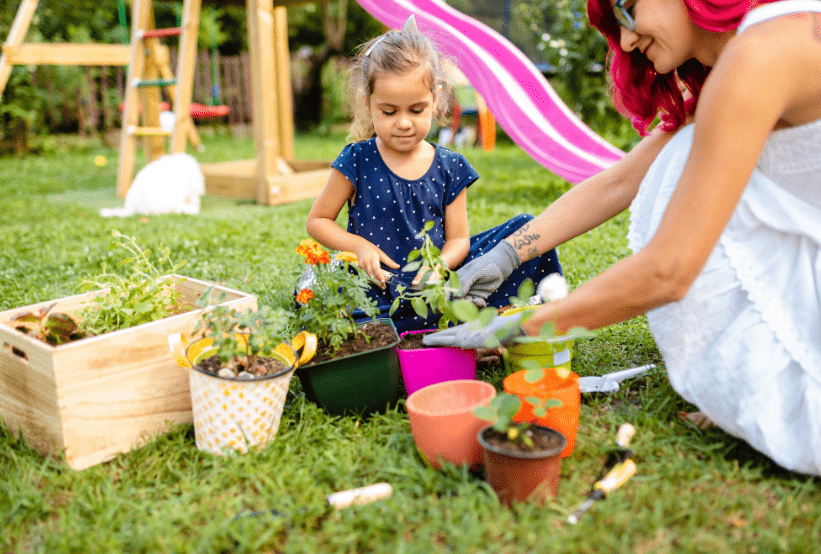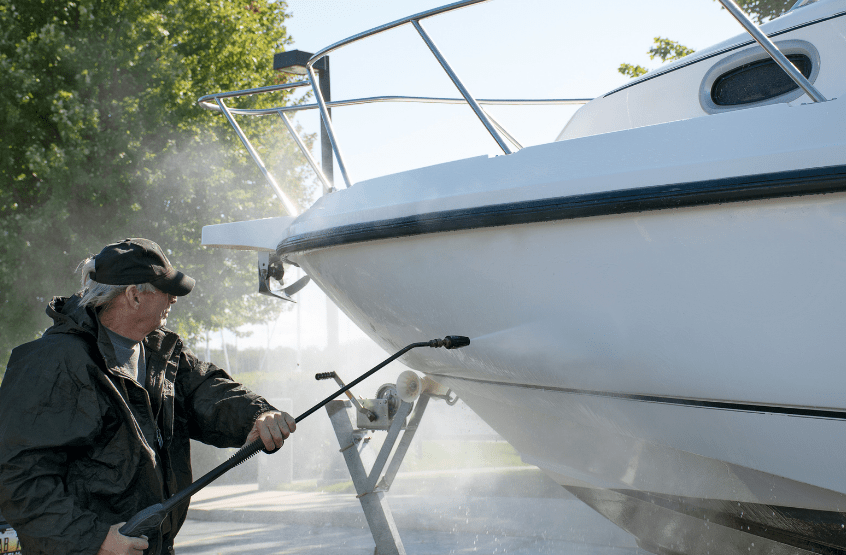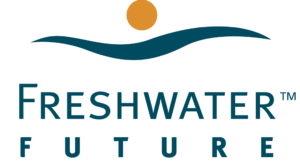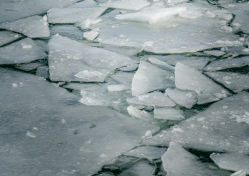Small actions can make a big difference! At Freshwater Future, we help thousands of communities around the Great Lakes protect their local waters so that, together, we can protect the whole of the Great Lakes. Individual actions are powerful, too! Here are five little things with big impact that you can do to help keep our lakes healthy and clean.
1. Watch What You Wash
One load of laundry can release more than 700,000 microscopic plastic fibers into the water system, polluting our waterways and disrupting the food chain. These fibers are shed in the wash from clothing made from synthetic textiles like fleece, acrylic, nylon, and polyester. They’re too small to be filtered out by most wastewater treatment plants, so they end up in our rivers and lakes. To minimize shedding, wash synthetic clothes less frequently, and wash full loads in cold water with liquid—not powder—detergent. Bonus points for installing a washing machine filter to capture the microplastics released with each load of laundry!
2. Go Fertilizer-Free
Nitrogen and phosphorus contribute to the growth of algae, which—in a balanced aquatic ecosystem—provides food for fish and other aquatic life. But too much nitrogen and phosphorus is entering our waterways as a result of runoff pollution from fertilizers, creating an overabundance of algae. Toxic algal blooms can poison fish, contaminate drinking water, and shut down beaches. Choose a phosphorus-free fertilizer, or better yet, skip the fertilizer altogether and replace your lawn with native plants to filter out pollutants.
3. Ditch the Aquatic Hitchhikers
Humans have introduced more than 186 invasive species to the Great Lakes ecosystem. You can help prevent their spread by rinsing and wiping down your boats, paddleboards, kayaks, and other watercraft after use. Be sure to remove all visible plant and animal species, and let the watercraft dry completely before setting out in a new body of water. Don’t forget that parts of the craft not exposed to the sun or proper air circulation—such as ballast and bait tanks, live wells, and bilge areas—will take extra time to dry.
4. Dispose of Meds Properly
Traces of pharmaceutical drugs—including antibiotics, hormones, and psychoactive drugs—can be found in the drinking water supplies of over 40 million Americans. When we ingest medications, our bodies don’t absorb the full dosage and we expel the unused portion. Most water treatment systems can’t filter this out, and traces of our medications end up in groundwater, lakes, and rivers—disrupting the ecosystem. To reduce your impact, take only the medication you need, and dispose of unused pills properly—do not flush them down the toilet.
5. Get Political
Individual actions to reduce your impact on Earth’s resources are important, but nothing can match the magnitude of society-wide shifts in energy and conservation policy. Vote for candidates who are committed to protecting our water, get involved in local campaigns, talk to your representatives, or better yet, run for office yourself!
